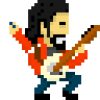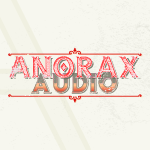-
Posts
1,732 -
Joined
-
Last visited
-
Days Won
5
Reputation Activity
-
 SnappleMan got a reaction from Flexstyle in Real time printing vs. offline bouncing
SnappleMan got a reaction from Flexstyle in Real time printing vs. offline bouncing
The thing is that you have to make sure your system is running smoothly as a whole so you don't get offline bouncing issues. Cubase is very good about it and there are very few issues with Kontakt if you are not maxing out your CPU meter. It comes down to how the DAW utilizes the CPU during the export process, Cubase usually takes a minute longer than Reaper does, but I get way more issues with Reaper so I have to re-render often.
If you hit F12 in Cubase you will get the VST Real Time Performance and CPU meter, there are two bars here, the top bar is the CPU meter that shows you how well your CPU is handling the load overall, the second bar is the Real Time Performance bar which shows how efficiently the entire system is running. If your CPU meter is maxing out then you simply cannot run that project well, and you can get export/bounce problems both real time and offline because offline bouncing depends almost entirely on your CPU (and offline bouncing will take a lot longer).
If the real time performance meter is maxing out or being erratic while the CPU meter is relatively low (CPU anywhere between 10-70%) it means that your OS is managing too many things (resource allocation for drivers, LAN, wifi, all kinds of programs) and the CPU has to handle too many other tasks before it can return to Cubase to process the audio. This is where the sample buffer comes in, if you increase the buffer size you let the CPU handle bigger chunks of Cubase's audio data, which gives you better real time performance, but at the cost of higher latency. Offline bouncing is fast because Cubase doesn't need to play the project back to you in real time, it can send huge chunks of the project to the CPU for processing and then wait to send more chunks as the CPU becomes available again, making it much faster than real time, so the real time peaks don't matter.
So the general rule is, if your CPU meter is OK, then you can do offline bouncing 99% of the time without issues regardless of the real time meter. If your real time performance meter is spiking then increase your buffer size and be careful about doing real time export, and make sure to double check that everything exported properly. The best way to handle external instruments has always been to record them into the project individually, and in the case with Kontakt and other AWFUL samplers like PLAY you can do the new "Bounce In Place" feature in Cubase 8 that does a fast spot bounce of that particular track (in virtually any output configuration you want, it's very very powerful), so that way you convert those MIDI/instrument tracks into Audio tracks automatically and your offline bounce process doesn't need to worry about it and can go quickly and smoothly.
-
 SnappleMan got a reaction from Sagnewshreds in OverClocked ReMix has 4 degrees of separation from Vince Gill
SnappleMan got a reaction from Sagnewshreds in OverClocked ReMix has 4 degrees of separation from Vince Gill
I am the beginning and the end.
-
 SnappleMan got a reaction from timaeus222 in Questions About DAWs and VST Plugins
SnappleMan got a reaction from timaeus222 in Questions About DAWs and VST Plugins
In terms of the guitar analogy think of your guitar as the DAW. You get a guitar that you like to hold and play, it feels comfortable and looks the way you want. The amps and pedals you use are the plugins that you use with your DAW, they give character, depth, sound, quality, timbre and life to the notes you extract from your guitar. The playing techniques you use are all dependent on your experience and skill, so just as any advanced guitarist can do great things with a novice guitarists gear, so can an experienced composer/arranger/engineer do with a novice's DAW/plugins. So try a few DAWs out and get the one you're most comfortable with, then get to work learning everything you can about music and working in any DAW.
-
 SnappleMan got a reaction from Sagnewshreds in Dwelling of Duels Star Wars results, Collaboration Month announcement
SnappleMan got a reaction from Sagnewshreds in Dwelling of Duels Star Wars results, Collaboration Month announcement
Hell yeah!!!! This is mad exciting. I really hope everyone from OCR who's gonna be at magfest enters at the very least. Ideally I would really love to see a bigger OCRemix presence in DoD but that's just wishful thinking. Anyway, I can't wait to hear what my OCRemixer comrades come up with, and can't wait to see you all at magfest and at the DoD listening party. Love you! <3333333333
-
 SnappleMan got a reaction from zykO in Dwelling of Duels Star Wars results, Collaboration Month announcement
SnappleMan got a reaction from zykO in Dwelling of Duels Star Wars results, Collaboration Month announcement
Hell yeah!!!! This is mad exciting. I really hope everyone from OCR who's gonna be at magfest enters at the very least. Ideally I would really love to see a bigger OCRemix presence in DoD but that's just wishful thinking. Anyway, I can't wait to hear what my OCRemixer comrades come up with, and can't wait to see you all at magfest and at the DoD listening party. Love you! <3333333333
-
 SnappleMan got a reaction from Ivan Hakštok in Dwelling of Duels Star Wars results, Collaboration Month announcement
SnappleMan got a reaction from Ivan Hakštok in Dwelling of Duels Star Wars results, Collaboration Month announcement
Hell yeah!!!! This is mad exciting. I really hope everyone from OCR who's gonna be at magfest enters at the very least. Ideally I would really love to see a bigger OCRemix presence in DoD but that's just wishful thinking. Anyway, I can't wait to hear what my OCRemixer comrades come up with, and can't wait to see you all at magfest and at the DoD listening party. Love you! <3333333333
-
 SnappleMan got a reaction from Slimy in Logic or...?
SnappleMan got a reaction from Slimy in Logic or...?
Also keep in mind that orchestration and proper sample use is key. Listen to Final Fantasy Tactics and remind yourself that you're listening to what amounts to a MIDI sequence through a very basic soundfont from the mid 90s. You can spend $100,000 on sample libraries but if you can't orchestrate a simple MIDI file well then you're wasting money. Also I'm just gonna come out and give you some good advice that's kind of scummy but consider pirating a huge sample library to try it out and learn it, then buy it. (And I do mean BUY it because pirated versions are almost never up to date, and even then companies will release very buggy versions of their libraries as version 1, knowing that they'll be pirated like crazy and then shortly afterwards send a fixed updated version to the actual customers via email).
So yeah, use whatever means you have to obtain a copy of LASS2 and learn it, it'll give you a basic understanding of working with legatos, crossfades and divisi.
-
 SnappleMan got a reaction from Frederic Petitpas in Logic or...?
SnappleMan got a reaction from Frederic Petitpas in Logic or...?
Also keep in mind that orchestration and proper sample use is key. Listen to Final Fantasy Tactics and remind yourself that you're listening to what amounts to a MIDI sequence through a very basic soundfont from the mid 90s. You can spend $100,000 on sample libraries but if you can't orchestrate a simple MIDI file well then you're wasting money. Also I'm just gonna come out and give you some good advice that's kind of scummy but consider pirating a huge sample library to try it out and learn it, then buy it. (And I do mean BUY it because pirated versions are almost never up to date, and even then companies will release very buggy versions of their libraries as version 1, knowing that they'll be pirated like crazy and then shortly afterwards send a fixed updated version to the actual customers via email).
So yeah, use whatever means you have to obtain a copy of LASS2 and learn it, it'll give you a basic understanding of working with legatos, crossfades and divisi.
-
 SnappleMan got a reaction from Flexstyle in Logic or...?
SnappleMan got a reaction from Flexstyle in Logic or...?
Also keep in mind that orchestration and proper sample use is key. Listen to Final Fantasy Tactics and remind yourself that you're listening to what amounts to a MIDI sequence through a very basic soundfont from the mid 90s. You can spend $100,000 on sample libraries but if you can't orchestrate a simple MIDI file well then you're wasting money. Also I'm just gonna come out and give you some good advice that's kind of scummy but consider pirating a huge sample library to try it out and learn it, then buy it. (And I do mean BUY it because pirated versions are almost never up to date, and even then companies will release very buggy versions of their libraries as version 1, knowing that they'll be pirated like crazy and then shortly afterwards send a fixed updated version to the actual customers via email).
So yeah, use whatever means you have to obtain a copy of LASS2 and learn it, it'll give you a basic understanding of working with legatos, crossfades and divisi.
-
 SnappleMan got a reaction from OceansAndrew in Logic or...?
SnappleMan got a reaction from OceansAndrew in Logic or...?
Logic and most other DAWs are FANTASTIC for orchestral music. So fantastic that the worlds most talented and esteemed composers use them for scoring. What you want to look into these days are libraries like Spitfire's Albion series, East West Hollywood Strings/Brass, Berlin Woodwinds/Strings, 8Dio's Adagio series, LASS2 and Cinesamples' offerings also (especially Cinepercs).
There are all kinds of awful misinformed opinions floating around out there about using specific DAWs or notation software like Sibelius but if we listened to types of opinions we'd all be using Pro Tools and buying $5,000 hardware compressors and EQs. In the end all that a DAW does is with regard to orchestral sounds is create a way for you to enter notes into VSTs, even if you go the notation software route you're going to need the same VSTs (in Logic's case AU), and you'll have to painstakingly edit legato transitions, note start times, mod wheel transitions, decays, keyswitches, arpeggiators and faulty Kontakt scripts (or god forbid you go via EastWest and have to deal with the PLAY engine...) in the same exact way. Any DAW out there that supports VST/AU will work pretty much identically in that regard.
So yeah, composing the song may be at best 40% of the work. The rest of the work comes down to you and your DAW, and spending many many hours trying to make your thousands of dollars of samples sound decent. So if you are used to GarageBand and can work well in it, go with Logic and you'll be set. Always remember that writing your music is step 1, and orchestrating it is step 2, and in the digital music realm you're orchestrating a second time for the samples, not to an orchestra, and that requires ridiculous amounts of editing because every sample library is recorded differently with its own legato timings,keyswitches, crossfades, patch structure and all around quirks.
-
 SnappleMan got a reaction from Flexstyle in Logic or...?
SnappleMan got a reaction from Flexstyle in Logic or...?
Logic and most other DAWs are FANTASTIC for orchestral music. So fantastic that the worlds most talented and esteemed composers use them for scoring. What you want to look into these days are libraries like Spitfire's Albion series, East West Hollywood Strings/Brass, Berlin Woodwinds/Strings, 8Dio's Adagio series, LASS2 and Cinesamples' offerings also (especially Cinepercs).
There are all kinds of awful misinformed opinions floating around out there about using specific DAWs or notation software like Sibelius but if we listened to types of opinions we'd all be using Pro Tools and buying $5,000 hardware compressors and EQs. In the end all that a DAW does is with regard to orchestral sounds is create a way for you to enter notes into VSTs, even if you go the notation software route you're going to need the same VSTs (in Logic's case AU), and you'll have to painstakingly edit legato transitions, note start times, mod wheel transitions, decays, keyswitches, arpeggiators and faulty Kontakt scripts (or god forbid you go via EastWest and have to deal with the PLAY engine...) in the same exact way. Any DAW out there that supports VST/AU will work pretty much identically in that regard.
So yeah, composing the song may be at best 40% of the work. The rest of the work comes down to you and your DAW, and spending many many hours trying to make your thousands of dollars of samples sound decent. So if you are used to GarageBand and can work well in it, go with Logic and you'll be set. Always remember that writing your music is step 1, and orchestrating it is step 2, and in the digital music realm you're orchestrating a second time for the samples, not to an orchestra, and that requires ridiculous amounts of editing because every sample library is recorded differently with its own legato timings,keyswitches, crossfades, patch structure and all around quirks.
-
 SnappleMan got a reaction from timaeus222 in Finding Music to Play
SnappleMan got a reaction from timaeus222 in Finding Music to Play
I use MIDI files every time I remix something. But that's because I transcribe the song and make the MIDI myself first. The rules and stigma against using existing MIDIs stem from people who will do nothing with the MIDI except play some synths with it and layer a drumbeat over it and call it a remix. You can and should MIDIs whenever you want as long as you're actually arranging the material and transforming it into your own musical vision. That doesn't mean changing the sounds but changing the MIDI itself into something that's original and your own. If you do use an existing MIDI you should consider giving credit to the person who made it also.
-
 SnappleMan got a reaction from AngelCityOutlaw in is it possible for a musician/band to earn money by playing video game music?
SnappleMan got a reaction from AngelCityOutlaw in is it possible for a musician/band to earn money by playing video game music?
Yeah exactly, and even then I've heard some stories about VGL (though unconfirmed so I wont share them here). The goal is to break even so your valuable time is not wasted. If you can spare the time and find value in the process of making music itself then that's payment enough (and has been payment enough for all of us here at OCR for over a decade).
-
 SnappleMan reacted to bustatunez in "Beyond Libra", anime-inspired soundtrack ft. Pixietricks, Raj Ramayya (Cowboy Bebop), coming to Kickstarter soon!
SnappleMan reacted to bustatunez in "Beyond Libra", anime-inspired soundtrack ft. Pixietricks, Raj Ramayya (Cowboy Bebop), coming to Kickstarter soon!
Hey guys! I posted about this aaaaages ago, but now finally my anime-inspired soundtrack album is almost ready for release! Influenced by composers like Yoko Kanno, Joe Hisaishi, and Yasunori Mitsuda, the 44-minute album features live orchestra, three live choirs (including a Nigerian vocal ensemble and a Slavic women's chorus), vocal performances by Jillian Aversa (Pixietricks), Raj Ramayya (from Cowboy Bebop and Wolf's Rain), Brandon Bush (Harmony) and others, and instrumental performances by Sixto, Drumultima, JeffBall, AeroZ, Audiofidelity, Chuck Simpson (Finbeard), and many more!
EDIT: Our kickstarter is now live!! https://www.kickstarter.com/projects/rogetmusic/beyond-libra-an-anime-inspired-soundtrack
-
 SnappleMan got a reaction from Bowlerhat in What DAW should I use?
SnappleMan got a reaction from Bowlerhat in What DAW should I use?
Like I said, every major DAW is pretty much great these days. Even Logic which I personally dislike working in. You can't go wrong. They all borrow so many features from each other that it really is a subtle flavor difference.
-
 SnappleMan got a reaction from Flexstyle in What DAW should I use?
SnappleMan got a reaction from Flexstyle in What DAW should I use?
Like I said, every major DAW is pretty much great these days. Even Logic which I personally dislike working in. You can't go wrong. They all borrow so many features from each other that it really is a subtle flavor difference.
-
 SnappleMan got a reaction from AngelCityOutlaw in Are super realistic samples necessary for video game music?
SnappleMan got a reaction from AngelCityOutlaw in Are super realistic samples necessary for video game music?
It's very simple; you will never fool the people you're trying to fool. Most people who hear music don't question the realism of your samples or anything silly like that, they just listen for things they like. The people who you want to fool are the ones who will always notice. Just make things sound good without trying to make them sound "real" and you'll end up making much better music.
-
 SnappleMan got a reaction from anterroir in Studio One 3 - My new main DAW
SnappleMan got a reaction from anterroir in Studio One 3 - My new main DAW
The S1 piano roll is solid. Very intelligently designed all around. The draw curve selection process can get convoluted but I don't see any logical way around that. I dislike how they have the tab at the end of the note that you click for deletion. It's a cool idea but I don't think it's as effective when you're trying to run around quickly entering notes and resizing whatever needs resizing.
Also the batch MIDI editing isn't that strong. In Cubase I have macros that quantize entire sections with different offset values (like if I want my kick drum to be looser than my hihat) with a single command. I can very easily change relatively velocities of the entire sequence with a single easy to reach function, I can transpose the entire sequence to the key of the song or whatever information is in my chord track, set up complex legato rules that automatically create legato transitions of my entire sequence with one click (very useful for orchestral programming). Something else that's really cool is that you can set a MIDI/instrument track to follow the chord track (cubase has a chord track that lets you enter the entire chord progression of your song) and so whatever you play will be locked to the chords that are set (or the relative scales, there are tons of input transforming options). So what you can do is enable QWERTY input (cubase lets you use your typing keyboard to record MIDI input) and just play any random keys and it'll be in key to the music. All this stuff coupled with the completely programmable MIDI function editor makes it really tough for S1 to compete with Cubase right now. But who knows, S1 4 might bring it closer.
And to this day there is no piano roll that even comes close to the Cubase Drum Editor. S1 and Reaper try but they fall short in the most simple and frustrating ways...
-

-

-
 SnappleMan got a reaction from avaris in Studio One 3 - My new main DAW
SnappleMan got a reaction from avaris in Studio One 3 - My new main DAW
I've been using S1 for a while as a backup DAW. For the way I work it has a long way to go before it can compete with Cubase, but it's getting there. The MIDI editing in S1 is pretty good too, but once you really get to know the Cubase MIDI workflow nothing else comes close. And as far as MIDI routing/sends and MIDI insert effects I don't think anything will ever top Cubase.
When it comes to piano rolls though you are going to learn to write music based on the workflow of the DAW that you started on. What I mean is, the nature in which you enter notes and edit notes will evolve differently. I learned on Cakewalk and Cubase, which is tool-based, which is the best way for me to work. FL feels very clunky to me because I like to enter notes first and then go back and edit if I feel like it, so much clicking to do that.
Also Cubase is very much a two handed DAW, uses mouse+keyboard to do very powerful things very easily, I feel like S1 is trying to be somewhere in the middle with that (like the middle ground between Cubase and Reaper). For my tastes I think it needs to pick a side and focus on that before it can be something I would consider switching to.
-
 SnappleMan got a reaction from Anorax in Advantages of Reason over FLStudio
SnappleMan got a reaction from Anorax in Advantages of Reason over FLStudio
I use Reason as an "instrument" more than a standalone application. You can't really compare the two because FLstudio is trying to be more of a full on DAW and Reason is pretty much a one trick pony (though it's a pretty nice trick!). Think of Reason kind of like a synthesizer with a built in sequencer where as FLstudio is like a run down studio that still somehow works...

























